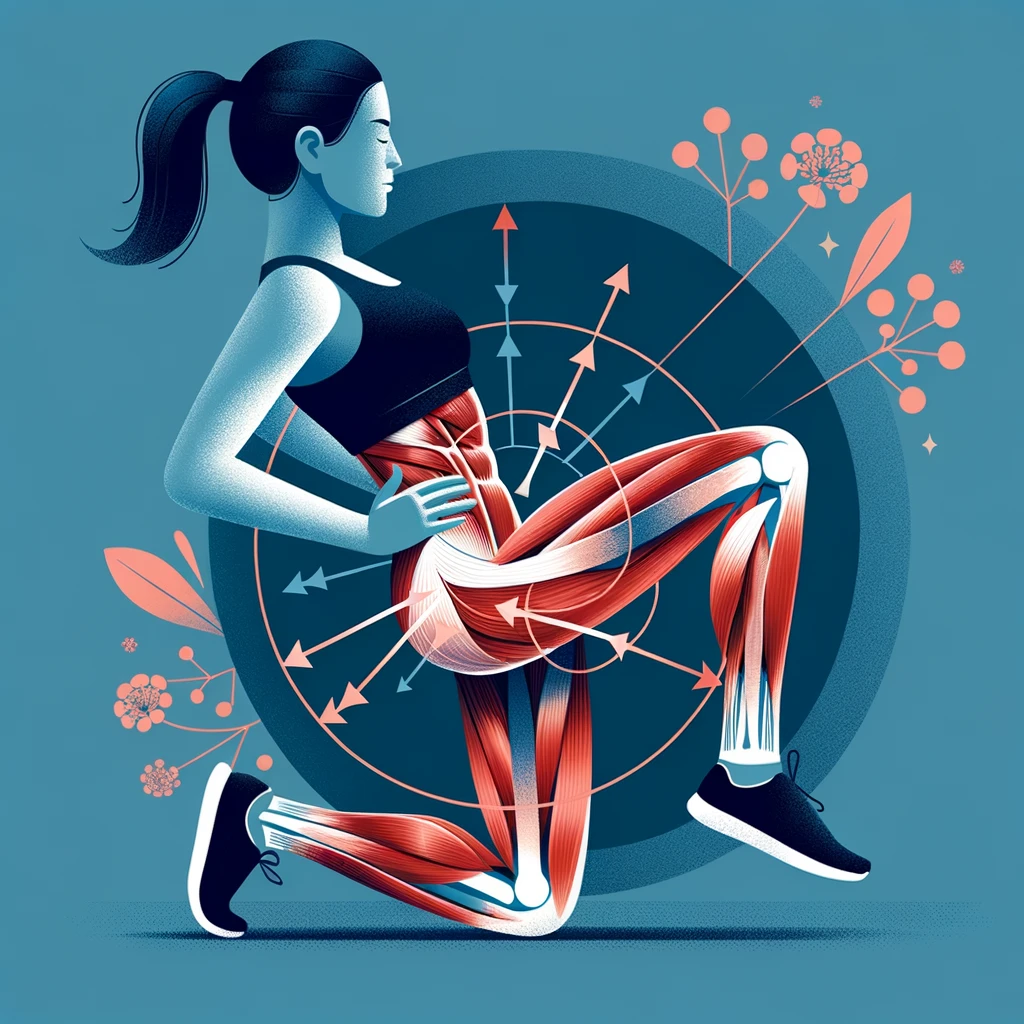Back
Gastroparesis and Endometriosis: The Benefits of Pelvic Floor Therapy
By Dr. Zarina Vitebsky, DPT, MSPT, PRPC, TPS, LPF, DN on 10/26/2023

Introduction
Explanation of Gastroparesis and Endometriosis
Gastroparesis is a condition in which the stomach muscles do not function properly, leading to delayed emptying of food into the small intestine. Endometriosis is a condition in which the tissue that lines the uterus grows outside of it, causing pain and inflammation. Both conditions can have a significant impact on a person's quality of life and can often occur together.
Overview of Pelvic Floor Therapy
Pelvic floor therapy is a specialized form of physical therapy that focuses on the muscles, ligaments, and connective tissues in the pelvic region. It involves exercises, manual therapy, and education to improve the function of these muscles and alleviate symptoms such as pain, incontinence, and sexual dysfunction.
Importance of Addressing Both Conditions Together
While gastroparesis and endometriosis are two separate conditions, they can often be interconnected and exacerbate each other's symptoms. For example, the inflammation and scarring caused by endometriosis can affect the function of the digestive system, leading to worsening symptoms of gastroparesis. Additionally, the pelvic floor muscles play a role in both conditions, as they can become tight and dysfunctional in response to pain and inflammation. Therefore, addressing both conditions together through pelvic floor therapy can provide more comprehensive and effective treatment.
Understanding Gastroparesis
Definition and Causes
Gastroparesis is a condition that affects the stomach muscles and causes delayed emptying of food from the stomach into the small intestine. This can be caused by damage to the vagus nerve, which controls the movement of food through the digestive tract, or by damage to the stomach muscles themselves. Other potential causes include diabetes, surgery on the stomach or esophagus, and certain medications.
Symptoms and Diagnosis
The most common symptom of gastroparesis is feeling full quickly after eating, even with small amounts of food. Other symptoms may include nausea, vomiting, bloating, and abdominal pain. These symptoms can be similar to those of other digestive disorders, making diagnosis challenging. Tests such as gastric emptying studies, upper endoscopy, and imaging tests may be used to diagnose gastroparesis.
Impact on Daily Life
Gastroparesis can significantly impact a person's daily life, as it can lead to malnutrition, dehydration, and difficulty maintaining a healthy weight. It can also cause discomfort and disrupt daily activities due to symptoms such as nausea and abdominal pain. In severe cases, gastroparesis can lead to hospitalization and the need for tube feeding.
Treatment Options
Treatment for gastroparesis may include dietary changes, medication, and in some cases, surgery. Pelvic floor therapy can help alleviate symptoms such as constipation, difficulty with bowel movements, abdominal pain, and bladder issues. Pelvic floor physical therapy (PT) focuses on the muscles, ligaments, and connective tissues that make up the pelvic floor. Pelvic floor PT can help by addressing myofascial trigger points and teaching relaxation techniques for pain, and can promote proper bowel mechanics and function. A diet low in fiber and fat, and high in small, frequent meals may also help manage symptoms.
Understanding Endometriosis
Definition and Causes
Endometriosis is a chronic condition where the tissue that normally lines the uterus grows outside of it, causing inflammation and scarring. The exact cause of endometriosis is unknown, but it is believed to be a combination of genetic, hormonal, and environmental factors. Women with a family history of endometriosis are at a higher risk of developing the condition.
Symptoms and Diagnosis
The most common symptom of endometriosis is pelvic pain, especially during menstruation. Other symptoms may include painful intercourse, heavy or irregular periods, and infertility. However, some women may not experience any symptoms at all. Endometriosis can be diagnosed through a pelvic exam, ultrasound, or laparoscopy, a surgical procedure where a small camera is inserted into the abdomen to view the pelvic organs.
Impact on Daily Life
Endometriosis can have a significant impact on a woman's daily life. The chronic pain and discomfort can make it difficult to perform daily tasks and participate in activities. The condition can also affect mental health, causing anxiety, depression, and feelings of isolation. Endometriosis can also lead to missed work or school days, affecting a woman's career and education.
Treatment Options
While there is no cure for endometriosis, there are various treatment options available to manage symptoms and improve quality of life. Pelvic floor therapy, which involves exercises and techniques to strengthen the muscles in the pelvic floor, has shown to be beneficial in managing pelvic pain associated with endometriosis. Other treatment options include pain medication, hormonal birth control, and surgery to remove the endometrial tissue.
The Connection Between Gastroparesis and Endometriosis
Explanation of how endometriosis can lead to gastroparesis
Endometriosis is a condition in which the tissue that normally lines the inside of the uterus grows outside of it, causing inflammation and scarring. This can lead to adhesions, or abnormal tissue connections, between the uterus and other organs, including the digestive tract. These adhesions can disrupt the normal functioning of the digestive system, leading to gastroparesis.
Common symptoms experienced by those with both conditions
Both gastroparesis and endometriosis can cause a range of symptoms, including abdominal pain, bloating, nausea, and constipation. When these conditions occur together, the symptoms can be more severe and difficult to manage. In addition, both conditions can also cause fatigue and a decreased quality of life.
Importance of addressing both conditions together
It is crucial to address both gastroparesis and endometriosis together in order to effectively manage symptoms and improve overall health. Treating one condition without addressing the other may not provide complete relief and can lead to ongoing discomfort and complications. Additionally, treating both conditions together can help prevent further damage and improve long-term outcomes.
Pelvic Floor Therapy for Gastroparesis and Endometriosis
Explanation of Pelvic Floor Therapy
Pelvic floor therapy is a type of physical therapy that focuses on strengthening and relaxing the muscles in the pelvic floor. The pelvic floor is a group of muscles that support the bladder, uterus, and rectum. These muscles can become tight or weak due to various factors, such as pregnancy, childbirth, surgery, or chronic conditions like gastroparesis and endometriosis.
How it Can Benefit Those with Gastroparesis and Endometriosis
Pelvic floor therapy can be beneficial for individuals with gastroparesis and endometriosis because it can help alleviate symptoms such as pelvic pain, constipation, and difficulty with bowel movements. By strengthening and relaxing the pelvic floor muscles, it can improve the function of the digestive and reproductive systems, leading to better overall health and quality of life.
Types of Pelvic Floor Therapy Techniques
There are various techniques used in pelvic floor therapy, including pelvic floor exercises, biofeedback, manual therapy, and electrical stimulation. Pelvic floor exercises involve contracting and relaxing the pelvic floor muscles to improve their strength and coordination. Biofeedback uses sensors to provide visual or auditory feedback on muscle activity, helping individuals learn how to control their pelvic floor muscles. Manual therapy involves hands-on techniques to release tension and improve muscle function. Electrical stimulation uses low-level electrical currents to stimulate the pelvic floor muscles and improve their strength and coordination.
Incorporating Pelvic Floor Therapy into Treatment Plan
Working with a Pelvic Floor Therapist
Pelvic floor therapy is a specialized form of physical therapy that focuses on the muscles, ligaments, and connective tissues in the pelvic region. It can be a valuable tool in managing symptoms of gastroparesis and endometriosis, as these conditions can often cause tension and dysfunction in the pelvic floor muscles. Working with a trained pelvic floor therapist can help identify and address any issues in this area, leading to improved symptoms and overall quality of life.
Creating an Individualized Treatment Plan
Each person's experience with gastroparesis and endometriosis is unique, and therefore their treatment plan should be tailored to their specific needs. A pelvic floor therapist will conduct a thorough evaluation to assess the individual's symptoms, medical history, and any other factors that may be contributing to their condition. From there, they will create a personalized treatment plan that may include a combination of exercises, manual therapy, and other techniques to address the root causes of their symptoms.
Combining Pelvic Floor Therapy with Other Treatments
Pelvic floor therapy can be used in conjunction with other treatments for gastroparesis and endometriosis, such as medication, dietary changes, and surgery. By addressing the pelvic floor muscles, this therapy can complement and enhance the effects of these other treatments. For example, pelvic floor therapy can help improve digestion and reduce pain and discomfort, which can be especially beneficial for those with gastroparesis. It can also help manage pelvic pain and improve bladder and bowel function in those with endometriosis.
Long-Term Management and Maintenance
Pelvic floor therapy is not a one-time fix, but rather a long-term management strategy for gastroparesis and endometriosis. As with any form of physical therapy, consistency and commitment are key to seeing results. A pelvic floor therapist will work with the individual to develop a maintenance plan that includes exercises and techniques to continue at home. This can help prevent symptoms from returning or worsening over time, and promote overall pelvic health and wellness.
If you are experiencing pelvic floor dysfunctions associated with the issues above, please reach out to us at Pelvic Health Center in Madison, NJ to set up an evaluation and treatment! Feel free to call us at 908-443-9880 or email us at receptionmadison@pelvichealthnj.com.
Read More:
Fascial Counterstrain of the Musculoskeletal System By Shannon Strauch, PTA, STMT-1 on 10/21/2024 How treating cartilage and fascia can help reduce joint pain and improve organ function The Impact of Long-Distance Cycling on the Pelvic Floor: Pudendal Nerve and Pelvic Dysfunction By Dr. Christine Martirez PT, DPT on 10/18/2024 Learn how long distance cycling can impact the pelvic floor
Are you ready to live pain free?
Request An Appointment